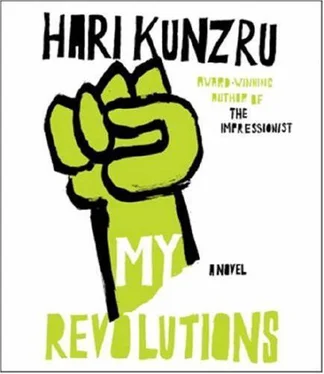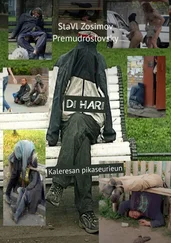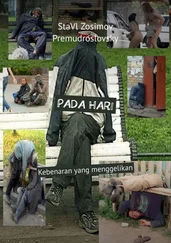Though chaotic, Charlie’s was never the kind of stoner household that had people and their ashtrays frozen into position on the sofas. Life was lived in an atmosphere of frenzied communal preparation. Something was happening in the world and, whatever it was, we were going to be in the middle of it. It was time to get
ready. People got ready by waking up at five A.M. to join picket lines, by writing leaflets, folding leaflets, organizing fund-raisers, getting pushed around by the cops, folding more leaflets, going to court, getting up at two A.M. to write slogans on walls on Golborne Road and talking, above all, talking. One morning I went to sleep in someone’s bed and woke up a few hours later in the middle of a reading group, eight people sitting on the floor picking through Hegel. I was just beginning to get involved in a discussion about the master-slave dialectic when Sean put his head round the door to ask if I wanted to go and “do the food run.” The word food was enough. I couldn’t remember the last time I’d gotten it together to eat.
We climbed into Rosa and parked just off Portobello Road. Sean seemed to know most of the stall-holders, and as we made our way through the market, he bantered and wheedled and was told to cut his hair a dozen times, but by the time we got to the far end we were carrying two large boxes filled with fruit and vegetables. There also seemed to be a butcher who had a bag of chops that needed eating up and a Portuguese grocer who owed him a bag of rice. It was an impressive haul. “And that’s just the leavings,” Sean said, a note of disgust in his voice. “Think what we could do if we got organized.”
We went back to Charlie’s and handed the food over to a couple of women from a Cuban Solidarity group, who happened to be chatting near the door. They headed into the kitchen and we sprawled on the sofas in the living room, listening to the peevish rattle of pans.
“Primitive Communism,” explained Sean, skinning up. “You hunt, you gather. You work for the group.”
“There’s more food than we can eat. There’s only about six of us in at the moment.”
“More will turn up. We could invite more.”
“You think they’re OK in the kitchen?”
“Sure, mate, they’re fine.”
Some time later, about twelve people sat down to eat and Sean
and I told them about the plan we’d just formulated to run a free shop. It would be an event, a one-day action. Systematic collection— go early to all the markets: Billingsgate, the Borough, Covent Garden. Box it up, then just give the stuff away outside Free Pictures. People could hand out literature. We’d feed a few people and make a political point: it would be an example of practical redistribution, a condemnation of consumer society.
We stayed up late, smoking cigarettes and making a list of people who might help out. I say we, but I knew nobody. Sean, on the other hand, seemed to know everyone in Wii. By the time we went to sleep we had dozens of names — people who worked on legal or housing issues, members of Big Flame and the IMG, some Spanish Black Cross anarchists who lived above our local betting shop. He had friends who worked at Release and the BIT information service. There was someone who wrote regularly for the underground press and a household of self-styled Diggers, who’d declared themselves the Albion Free State. The BIT people had an office round the corner. They’d probably let us use their phone.
The next morning I woke up on the sitting-room floor to find myself staring at a pair of long, tanned, female legs, which culminated in sandaled feet with chipped black varnish on the toenails.
“Anyone in there?”
I looked up to see the stone-throwing girl. From the floor she looked startlingly tall and slender, beautiful enough to make me feel conscious of being naked inside the sleeping bag. She had high, almost Slavic cheekbones, green eyes and straight brown hair that fell round her face like a curtain as she stared down at me. She wore denim shorts and a sleeveless black vest, no jewelry, no adornment at all except a black and white keffiyeh thrown round her shoulders. “Is Sean around?” she asked abruptly.
“No idea. He was here last night.”
“I need to talk to him.”
I noticed that she was with someone. A thick-set, handsome man with curly dark hair and a flourishing, almost biblical beard
was leaning on the back of one of the sofas. He looked like a boxer or a rock climber, someone used to physical endurance, an impression emphasized by a number of fresh cuts on his face.
“I don’t know where Sean is,” I told the woman. “I was asleep.”
“I suppose you think you’re living here.”
I disliked her tone. “What’s it to you?”
“I actually do live here.”
“I see. And you are?”
“God, what the fuck is your problem?” asked the man. He had an American accent.
I noticed they’d dumped backpacks on the floor, amid the remains of last night’s planning session, a jumble of papers and dinner plates used as ashtrays. I propped myself against the wall and rubbed my eyes. “I don’t like being hassled when I’m half asleep. That’s my problem. If you want to leave a message for Sean, I’ll give it to him. He’s probably gone to Free Pictures. What time is it?”
“It’s eleven,” said the woman, her tone softening slightly. “I’m going to make tea. Is there milk?”
“Yeah, probably.”
“Do you want a cup?”
“OK. Thanks.”
“How do you take it?”
And so I ended up sitting round the kitchen table listening to Anna Addison and Saul Kleeman talk about Paris. For three weeks we’d been reading about the strikes, the students fighting the police in the Latin Quarter, but the reports were so confused and partisan that it was impossible to make out what was happening. They’d actually been there. Their stories were incredible. Groups of people who’d never met each other forming chains to build barricades. The CRS launching tear-gas grenades, then charging the protesters. They’d met in the doorway of an apartment building, desperately ringing doorbells, trying to get someone to let them in after the CRS overran the rue Gay-Lussac. With the cops tramping up and down the stairs outside, a girl had hidden twenty of them in her
place overnight. The next morning, a friendly workman had driven them through the police cordon, hidden in his camionette . There had been mass arrests, terrible violence. They’d seen a police squad corner two Algerians, leaving them both for dead.
It was obvious they were lovers. As they told their tale, Saul draped an arm over the back of Anna’s chair and played with her hair. The cuts were souvenirs of a beating he’d taken on a demo outside the Renault factory. He’d narrowly escaped getting arrested and deported, which, since he’d fled the States after drawing a low number in the draft lottery, would have meant either prison or Vietnam. He was going to apply to stay in Sweden, unless “something serious” happened in London, in which case he thought he might hang around. I couldn’t tell whether he meant something serious politically, or with Anna.
I heard the front door slam upstairs, then Sean came bounding down into the kitchen. “Anna,” he shouted, gathering her up into his arms and kissing her full on the mouth. I noticed she responded. So did Saul. He didn’t look pleased.
That night, as people were sorting out where they’d sleep, Anna asked Sean casually whether a particular room was free. He said it was. “See you in the morning, then,” she told him, taking Saul’s hand and leading him upstairs. Sean watched them inscrutably, then unhooked his jacket from the back of his chair and left the house.
Читать дальше












